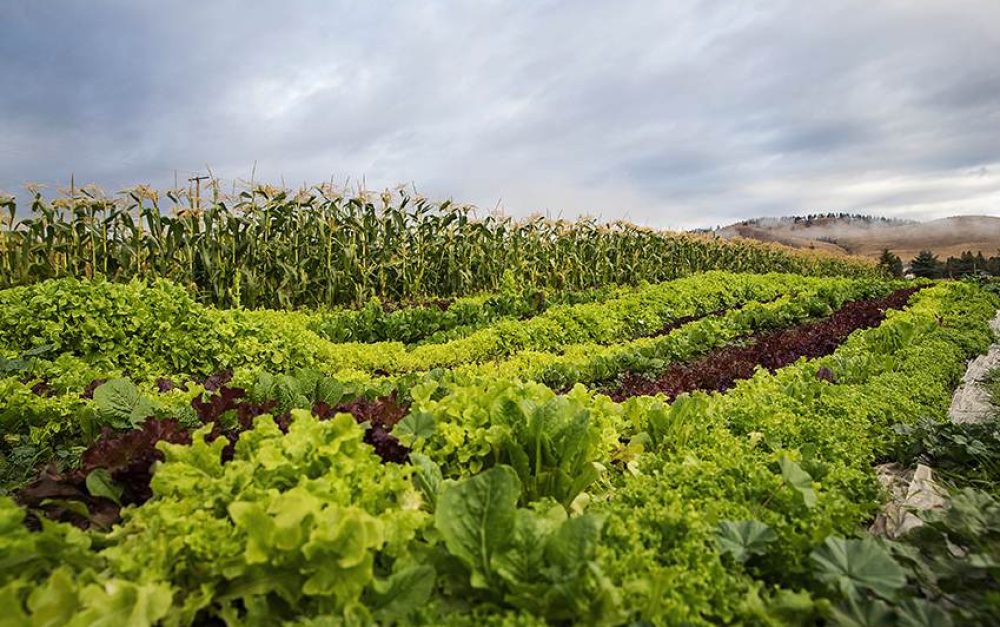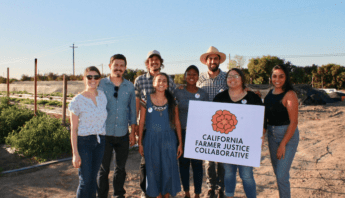Approximately every five years the U.S. Congress passes a multi-billion dollar set of policies collectively known as the Farm Bill — although it really should be called the “Food and Farm Bill” since about 80% of funds support food access and nutrition programs. Other policies include crop insurance and subsidies to large commodity crop growers (like corn and soybean), as well as a variety of small but vital supports to help new farmers get started. There are also programs to support family farmers implementing practices to better protect soil, water and pollinator resources. Most of the latter, a series of conservation programs, also serve to help farmers adapt to and mitigate climate change.
While the bundle of policies can seem wonky, they dictate our approach to nutrition and farming across the U.S. In the last Farm Bill, we saw investments in beginning farmer programs, local and regional food systems, organic agriculture and research pay off. These structures improved the lives of producers and communities by helping to usher in the next generation of farmers and ranchers, increasing access to healthy food, supporting the successful development of new rural enterprises and ensuring that cutting edge systems and practices are available to all farmers and ranchers. However, deep cuts in the conservation programs significantly limited their reach.
This time around, along with our friends in the National Sustainable Agriculture Coalition (NSAC), we’re pushing for deeper investments in policies to support family farms and ecological farming practices. Along with policies outlined in NSAC’s 2018 Farm Bill platform, we support:
- Aspiring and retiring farmers and ranchers by assuring equitable access to land, credit, crop insurance and conservation program support for beginning, small and diversified operations.
- Providing farmers and ranchers with the skills and resources (including measurements and evaluation) necessary to ensure resilient farms and food systems by prioritizing support for the most effective conservation activities addressing the priority natural resource concerns.
- Improving the crop insurance program — the cornerstone of the farm safety net — by directing tax dollars preferentially to those farmers whose practices promise to reduce risk through sustainable crop and soil management, rather than use of conventional practices that exacerbate soil erosion, loss of organic matter, contamination of water, and harm pollinators or other wildlife.
Furthermore, PAN stands strongly behind overarching NSAC principles and priorities to:
- Advance racial equity in the food and farm system
- Reverse the trend of rapid consolidation and vertical integration in agriculture
- Increase access to healthy food, particularly for vulnerable children
- Increase funding for sustainable agriculture and organic research, education and extension
- Focus renewable energy programs on solar, wind and perennial-based biofuels
Additionally, we are committed to supporting sustainable agricultural practices and working to ensure that all farmers, especially those historically overlooked in a political system defined by a long history of structural and cultural racism, receive Farm Bill supports. NSAC’s racial equity statement begins with the following:
We affirm that racial equity – an understanding and acknowledgement of historical and ongoing racial inequities and a commitment to actions challenging those inequities – is a core tenet of our coalition’s outlook and will be embedded in its structure, analysis, and policy development and advocacy process.
Within NSAC and beyond, farmers and ranchers are voicing strong support for an equitable farm subsidy system that helps beginning and minority farmers — as well as small, diversified and organic operations — and puts an end to the practice of providing unlimited subsidies to the biggest farm businesses. We stand with them, and are pushing for policies in the Food and Farm Bill to make it so.








